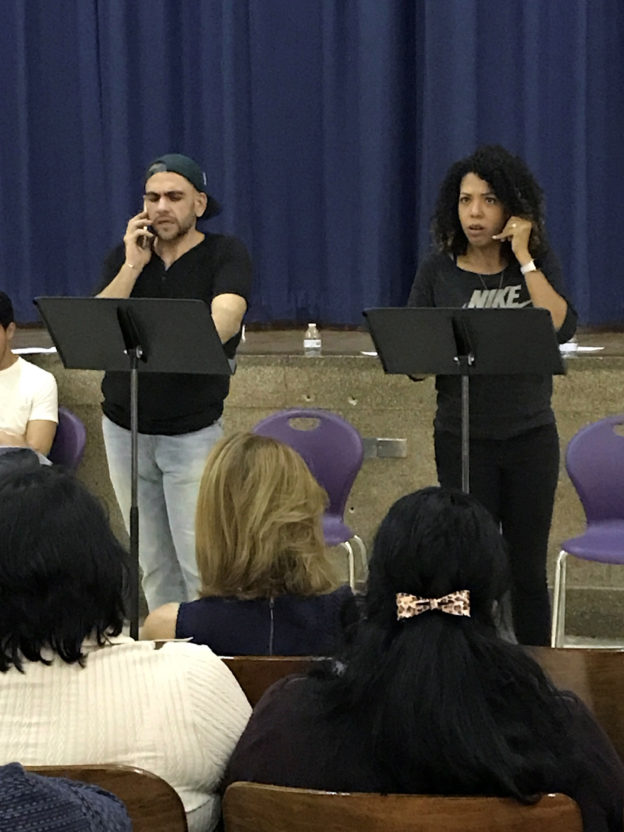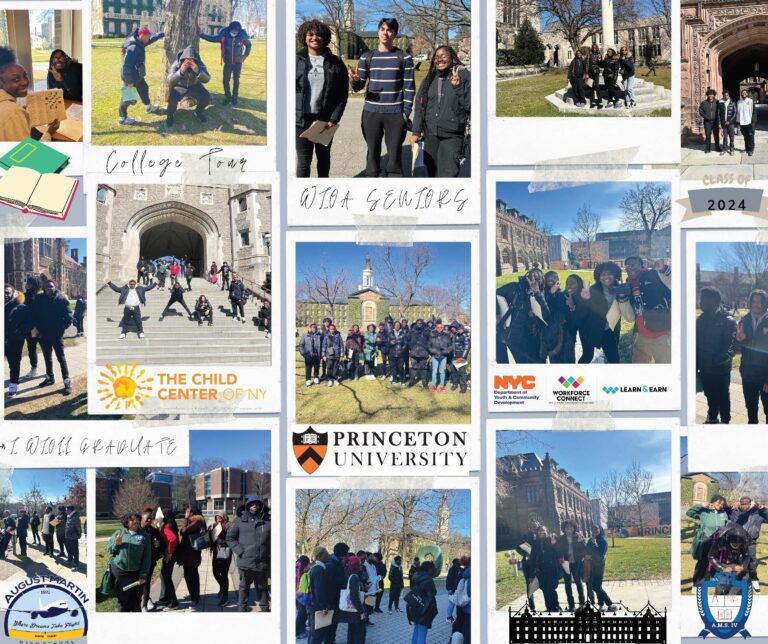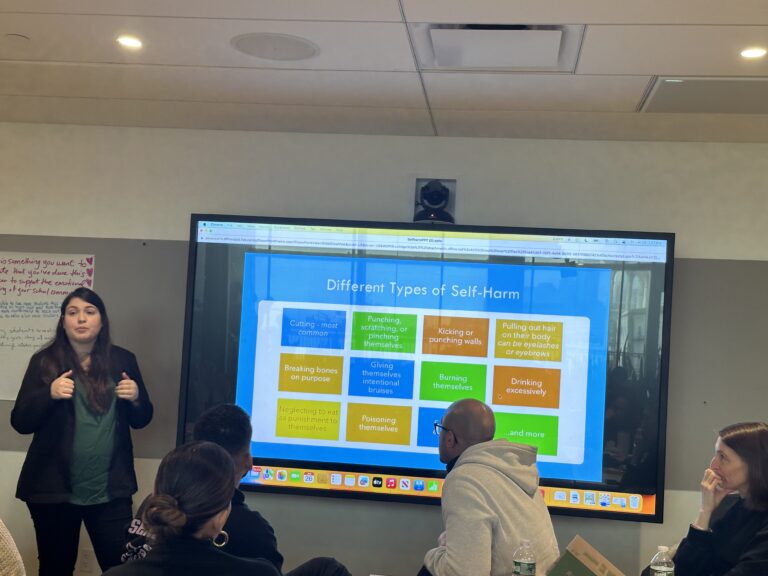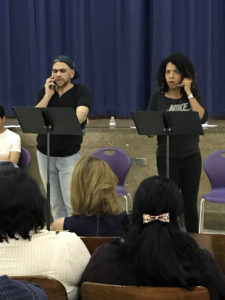 When a child spends his adolescence in the criminal justice system, his time behind bars might stay off his permanent record, but the experience never gets fully erased from his psyche. “Adolescents who’ve been in the criminal justice system mostly talk about the trauma and abuse they experienced there,” says Miosotte Caban, a therapist at The Child Center of NY’s Jamaica Family Center. “Some say they will be traumatized for life and may not live what society calls a normal life.”
When a child spends his adolescence in the criminal justice system, his time behind bars might stay off his permanent record, but the experience never gets fully erased from his psyche. “Adolescents who’ve been in the criminal justice system mostly talk about the trauma and abuse they experienced there,” says Miosotte Caban, a therapist at The Child Center of NY’s Jamaica Family Center. “Some say they will be traumatized for life and may not live what society calls a normal life.”
At The Child Center, we help teens address these issues through traditional methods, like therapy and internships, and we constantly seek out new, innovative, evidence-based ways to reach the goal of helping young people become secure, capable, and confident.
This May, that took the form of a performance by professional actors of the acclaimed Manhattan Theatre Club, performing pieces written by 10 adolescent clients of The Child Center’s Jamaica Family Center behavioral health program, all of whom have been involved with the criminal justice system.
But they are so much more than that involvement, as the performance pieces made clear. Topics ranged from family and personal challenges to gangs, substance abuse, and therapy sessions — and the audience was captivated.
The night was the result of a collaboration between JFC and MTC, which joined together to provide JFC clients with a therapy-based playwriting residency supported by MTC’s playwriting program.
For more than 25 years, MTC has worked with youth confronting challenges of poverty, trauma, and criminal justice involvement. By allowing these marginalized youth to reflect on their own personal stories and write them from their unique point of view — and to see the stories come to fruition on the stage — the program uses the collaborative and creative nature of theatre to empower and encourage these young people to reimagine their lives and give voice to their thoughts, hopes, and dreams.
The model has been used in high schools throughout the city, particularly in the Passages Academy high school at Rikers Island.
This was the first time MTC worked with Child Center clients, and it exceeded the expectations of all involved.
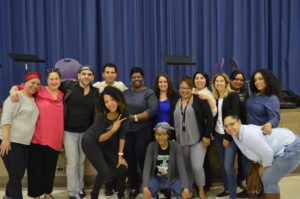
Staff of Jamaica Family Center and members of Manhattan Theatre Club, who worked together to produce and perform mini-plays written by clients.
“The clients got so much out of it,” said Johanna Bos, LCSW CASAC, clinical director of JFC’s substance abuse program. “It was a tremendous experience to see clients who normally would not discuss their pasts feel open and comfortable enough to allow the actors the leeway to interpret their stories.”
Caban, who was the primary therapist working with the clients and the theater company, agreed: “They all have a criminal record so they believe finishing high school and getting a job is not possible for them. The theatre company helped them visualize a better life for themselves. They believe they can change now and become whatever they want and that they have a second chance at life.”
With the guidance of professional theater artists and educators, the teens also learn a lot about the writing process — the importance of brainstorming, the need to listen to feedback and revise accordingly, and to pay attention to emerging themes and ideas.
Perhaps most important, realizing that an acclaimed theater club and accomplished actors think enough of their stories to take them to the stage is a significant boost to clients’ self-esteem.
“These young men and women showed up to the task of writing a play with courage, honesty and persistence,” said MTC Teaching Artist Marilyn Torres. “They got to go through the process of writing with all its frustrations and learning curves and complete the work, which in turn allowed them to be seen in a new way by themselves and others. They got to feel and witness in themselves that indeed they are capable of wonderful achievements, given the chance.”
Harry, a JFC client whose work was performed that night, said, “It would be awesome if other clinics and programs partnered with MTC.”
According to Bos, that’s a strong possibility: “We are planning to do another round, perhaps with adults, very soon.”
